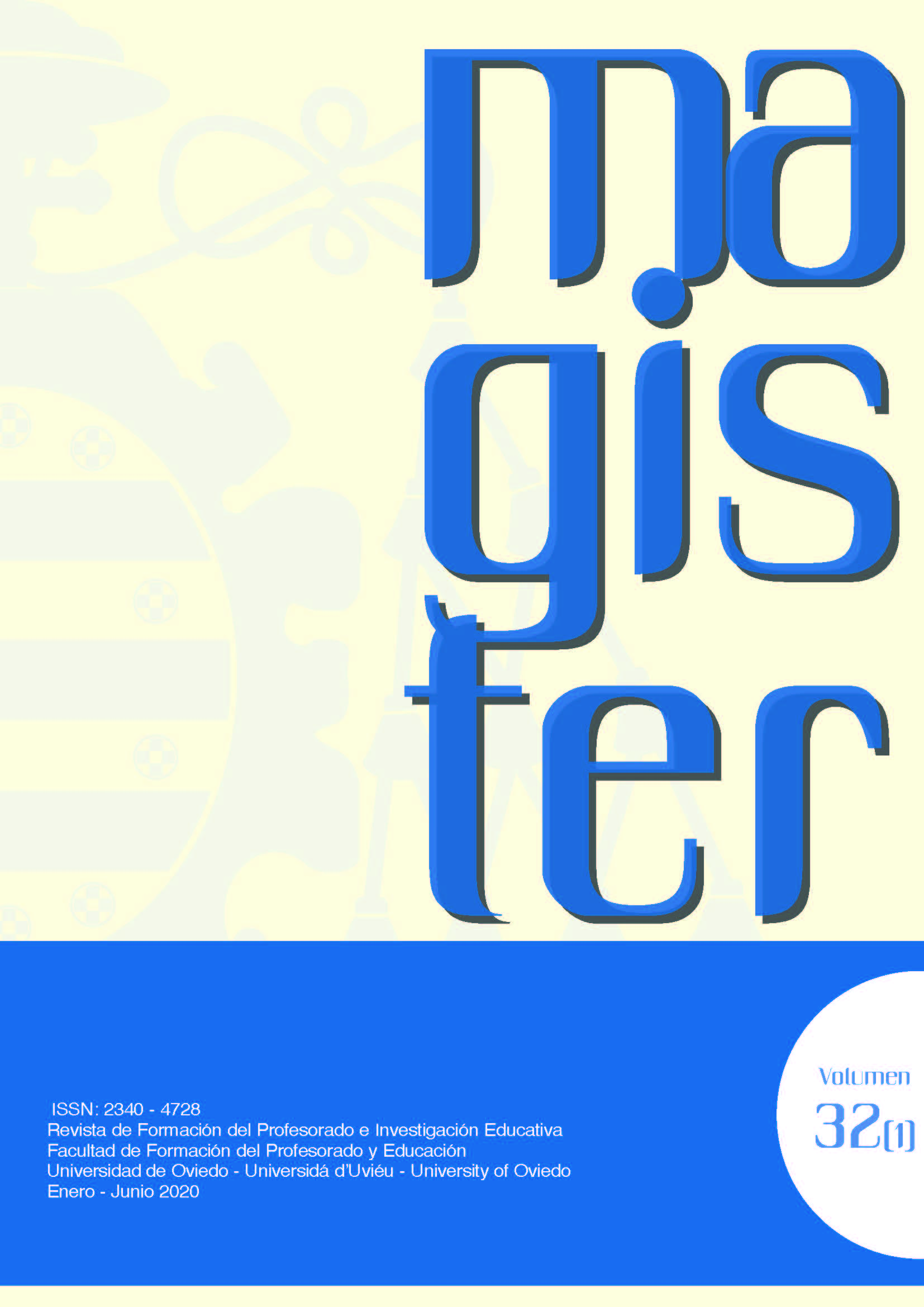Abstract
The COVID-19 pandemic has produced a global change situation in society, which has been confined and the teaching-learning processes at all educational levels have been restructured. The situation has been analysed with the students of the course of Knowledge of the natural and cultural environment, in the Degree in Early Childhood Education, with the aim to design an online evaluation process that allows a correct assessment of the competences and learning outcomes, suitable with the general and particular situation of the students. The different pattern of online access to the course is analysed, compared to the previous year, and the perceptions of the students about their situation and the results achieved during the course, as well as the students problems and possible solutions for a suitable online evaluation.References
Bargiela, I. M., Puig, B., & Blanco Anaya, P. (2018). Las prácticas científicas en infantil: una aproximación al análisis del currículum y planes de formación del profesorado de Galicia. Enseñanza de las ciencias, 36(1), 7-23. https://doi.org/10.5565/rev/ensciencias.2311
Cabero Almenara, J., & Ruiz Palmero, J. (2018). Las Tecnologías de la Información y Comunicación para la inclusión: reformulando la brecha digital. International Journal of Educational Research and Innovation, 9, 16-30.
Celik, V., & Yesilyurt, E. (2013). Attitudes to technology, perceived computer selfefficacy and computer anxiety as predictors of computer supported education. Computers & Education, 60(1), 148-158. http://dx.doi.org/10.1016/j.compedu.2012.06.008
Chirumamilla, A., Sindre, G., & Nguyen-Duc, A. (2020). Cheating in e-exams and paper exams: the perceptions of engineering students and teachers in Norway. Assessment & Evaluation in Higher Education, in press. https://doi.org/10.1080/02602938.2020.1719975
de Pro Bueno, A., de Pro Chereguini, C., & Doménech, J.C. (2019). ¿Cómo estamos formando a las futuras maestras para enseñar ciencias en el grado de educación infantil? Universitas Tarraconensis. Revista de Ciències de l'Educació, 2019.2, 88-99. DOI: https://doi.org/10.17345/ute.2019.2.2657
Doménech, J. C., de Pro Bueno, A., & Solbes, J. (2016). ¿Qué ciencias se enseñan y cómo se hace en las aulas de educación infantil? La visión de los maestros en formación inicial. Enseñanza de las ciencias, 34(3), 25-50. Doi: http://dx.doi.org/10.5565/rev/ensciencias.1870
Dorrego, E. (2016). Educación a distancia y evaluación del aprendizaje. RED. Revista de educación a distancia, 50, art. 12. http://dx.doi.org/10.6018/red/50/12
Echeita, G. (2020). La Pandemia del Covid-19. ¿Una oportunidad para pensar en cómo hacer más inclusivos nuestros sistemas educativos? Revista Internacional de Educación para la Justicia Social, 9(1), 7-16.
Ferdig, R.E., Baumgartner, E., Hartshorne, R., Kaplan-Rakowski, R. & Mouza, C. (2020). Teaching, Technology, and Teacher Education during the COVID-19 Pandemic: Stories from the Field. Waynesville: Association for the Advancement of Computing in Education (AACE). https://www.learntechlib.org/p/216903/
Fernández Manzanal, R., & Bravo Tudela, M. (2015). Las ciencias de la naturaleza en la Educación Infantil. Madrid: Ediciones Pirámide.
García-Peñalvo, F.J., Corell, A., Abella-García, V. & Grande, M. (2020). La evaluación online en la educación superior en tiempos de la COVID-19. Education in the Knowledge Society, 21, article 12 DOI: https://doi.org/10.14201/eks.23013
Gómez, D. C. (2019). Una aproximación a la evolución de la brecha digital entre la población joven en España (2006-2015). Revista Española de Sociología, 28(1), 27-44. Doi: http://dx.doi.org/10.22325/fes/res.2018.16
IESALC (2020). COVID-19 y educación superior: De los efectos inmediatos al día después. Análisis de impactos, respuestas políticas y recomendaciones. Caracas: Instituto Internacional para la Educación Superior en América Latina y el Caribe - UNESCO. https://www.iesalc.unesco.org/
Lozano-Díaz, A., Fernández-Prados, J. S., Figueredo Canosa, V., & Martínez Martínez, A. M. (2020). Impactos del confinamiento por el COVID-19 entre universitarios: Satisfacción Vital, Resiliencia y Capital Social Online. International Journal of Sociology of Education, 9(Extra 1), 79-104. http://doi.org/10.17583/rise.2020.5925
Mérida Serrano, R., Torres-Porras, J., & Alcántara Manzanares, J. (eds.) (2017). Didáctica de las ciencias experimentales en educación infantil. Un enfoque práctico. Madrid: Editorial Síntesis.
Quijano López, R. (coord.) (2016) Enseñanza de las Ciencias de la Naturaleza en Educación Infantil. Madrid: Ediciones Pirámide.
Sanmartí, N. & Machán Carvajal, I. (2015). La educación científica del siglo XXI: retos y propuestas. Investigación y Ciencia, 469, 31-39.
Smith, K. (2016). Functions of assessment in teacher education. En J. Loughran & M.L. Hamilton (eds.) International handbook of teacher education (vol. 2, pp. 405-428). Singapur: Springer. https://doi.org/10.1007/978-981-10-0369-1_12
Torralba-Burrial, A., & Herrero, M. (2018). Potenciando la inclusión mediante buenas prácticas en infoaccesibilidad: la Didáctica de las Ciencias de la Vida en la formación inicial de maestros de Educación Infantil y Primaria. En A.I. Allueva Pinilla & J.L. Alejandre Marco (coords.) Casos de éxito en aprendizaje ubicuo y social mediado con tecnologías (pp. 109-117). Zaragoza: Prensas de la Universidad de Zaragoza.

